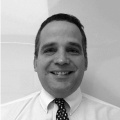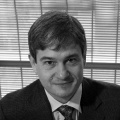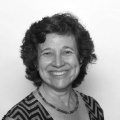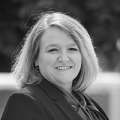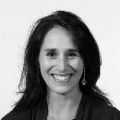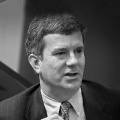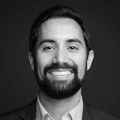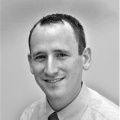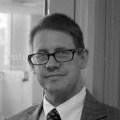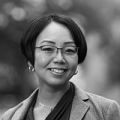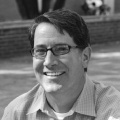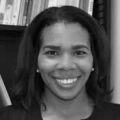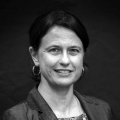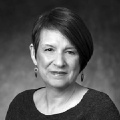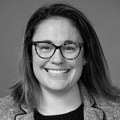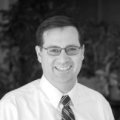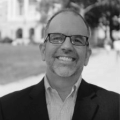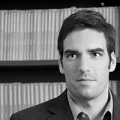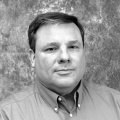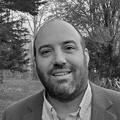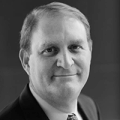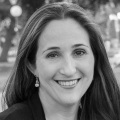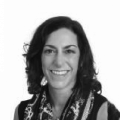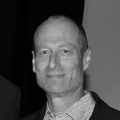Experts
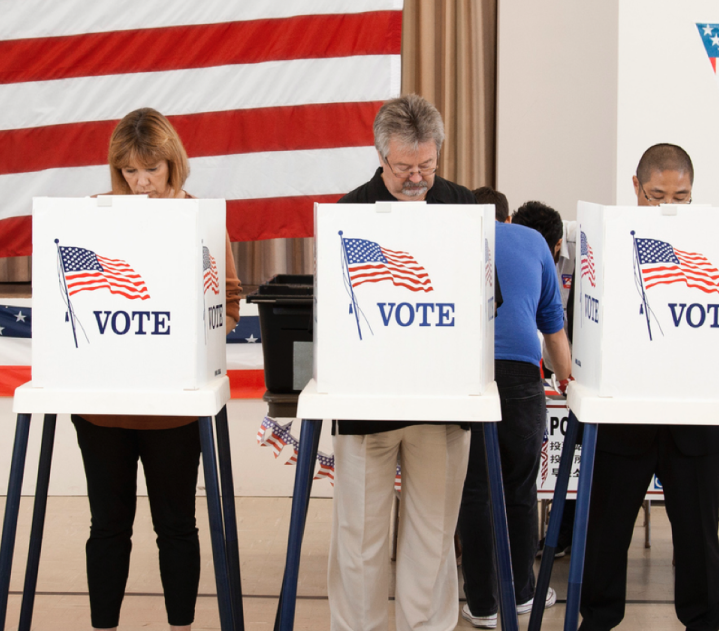
Ted Allen is Associate Professor of Integrated Systems Engineering at The Ohio State University. His interest relates specifically to ending in-person waiting in elections using simulation optimization and related methods. More broadly, he seeks to enable officials to run efficient and accurate elections using integrated systems engineering methods, including securing systems from cyber security threats.
Lonna Atkeson is the director of the LeRoy Collins Institute, a nonpartisan, statewide policy think tank that uses applied social science to understand and provide solutions to state and national problems. Her research focuses on elections, political behavior, public opinion, and public policy.
Mitchell Brown, Ph.D., is Professor of Political Science at Auburn University, an Associate Editor of the Journal of Political Science Education (Science of Teaching and Learning), and a founding editor of the Journal of Election Administration Research & Practice. Her work as a researcher, evaluator, trainer and consultant focuses on applied projects around the country centering on election administration, community building, and community-based problem solving. From 2015-2018 she served as the Director of Auburn University PhD Program in Public Administration and Public Policy, and has also held board and leadership positions at the university, in state government, and in non-profit organizations.
Lisa A. Bryant is a professor of political science at California State University, Fresno. Dr. Bryant's research in election administration and voter behavior includes studies on voter registration, voter confidence, voter ID, and how election reforms influence turnout. She currently sits on the research advisory board for the Electronic Registration Information Center (ERIC) and is an inaugural editorial board member for the Journal of Election Administration Research & Practice.

Barry Burden's research is focused on electoral politics, with an emphasis on the effects of election law and administration on a variety of outcomes including voter turnout. He hosted the 2018 Election Sciences, Reform, and Administration conference.
John C. Fortier is a senior fellow at the American Enterprise Institute, where he focuses on Congress and elections, election administration, election demographics, voting (and absentee voting), the US presidency, and the Electoral College. He was previously director of the Bipartisan Policy Center's Democracy Project. He is the author of Absentee and Early Voting: Trends, Promises and Perils, the author and editor of After the People Vote: A Guide to the Electoral College, and numerous academic articles in political science and law journals. Fortier has been a regular columnist for The Hill and Politico.
Bernard L. Fraga's research interests are in the areas of American electoral politics, racial and ethnic politics, and political behavior. Broadly, he studies how group identities and electoral contexts impact individual political behavior. Professor Fraga's methodology tends toward the statistical analysis of observational, large-N data associated with voter registration records and election results. He also conducts research on election law and electoral institutions in the United States. Professor Fraga teaches graduate and undergraduate courses on American elections, racial/ethnic politics in the United States, and political science research methods.
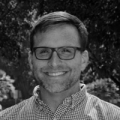
Justin Grimmer is a Professor in Stanford University's Department of Political Science, Senior Fellow at the Hoover Institution, and Co-Director of the Democracy and Polarization Lab. His research focuses on Congress, elections, social media, and data science.

Paul Gronke is the founder and Director of the Elections & Voting Information Center (EVIC), a non-partisan academic research center co-located at Reed College and Portland State University. Led by Paul, EVIC searches for common sense, non-partisan solutions to identified problems in election administration backed by solid empirical evidence. EVIC's marquee project is the Survey of Local Election Officials (LEO), which the organization has undertaken since 2018.
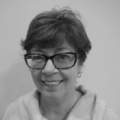
Kathleen Hale is Professor of Political Science at Auburn University where she directs its Election Administration Initiative and Graduate Program in Election Administration. She teaches courses in election administration, qualitative methods, and intergovernmental relations, and her research examines how to improve capacity of government and nonprofit organizations to address public problems. Dr. Hale also directs Auburn’s partnership with the Election Center (National Association of Election Officials) to professionalize the public administration of elections through its national certification program.
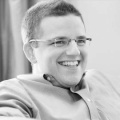
Andrew Hall’s research is about understanding and improving democratic elections, policy, and governance. His current research seeks to understand how democratic elections can be safely administered during the COVID-19 pandemic, why political polarization has risen and how it could be reduced, and how American government can become more effective and innovative. To understand these topics, Hall’s research group collects large-scale new data on elections, policy outcomes, and individual behavior, and analyzes them using cutting-edge methods from econometrics, statistics, and data science.

I specialize in political participation, public opinion, and election reform. This work has led me to explore various stages of the voting process from the adoption of election laws that regulate the process, the ways government officials implement the laws, and the effects of the laws on behavior, to the interactions of citizens and the technology they use to cast a ballot.
Eitan Hersh studies civic participation and the relationship between election rules, strategies, and the behavior of voters. He has used such databases to study the voter registration system, voter ID laws, early voting, and electoral participation. He has also used voter files to answer questions on a wide range of topics, including terrorism, medical practice, and religious leadership.
M.V. (Trey) Hood III is a Professor in the Department of Political Science at the University of Georgia and Director of the SPIA Survey Research Center. In the area of election administration he has conducted research on voter ID laws, early in-person voting, election fraud, redistricting, Section 2 VRA claims, voter interaction with ballot marking systems, and the intersection of public opinion and changes to election law.
Kei Kawashima-Ginsberg is the Newhouse Director of The Center for Information and Research on Civic Learning and Engagement (CIRCLE) at Tisch College of Civic Life at Tufts University. CIRCLE is a nonpartisan national research institute that focuses on youth civic and political learning and engagement. CIRCLE uses its expansive portfolio of research initiatives, tools for practitioner organizations, educators and other civic stakeholders, and reports to facilitate systems-level change to advance access to opportunities for civic learning and democratic participation across communities.
David Kimball is professor and interim chair of Political Science at the University of Missouri-St. Louis. His research has examined the impact of ballot design, voting equipment, voter ID laws, and voting rules on voting behavior. He has also examined the challenge of administering elections in local jurisdictions of widely different sizes.
Bridgett A. King is an Associate Professor of American Politics in the Department of Political Science at the University of Kentucky. Previously, she was Associate Professor in the Department of Political Science and Director of the Master of Public Administration Program at Auburn University. Dr. King teaches courses in state policy and governance, policy analysis, public administration and service, and diversity in public administration. Previously, Dr. King was a Voting Rights Researcher at the Brennan Center for Justice. Dr. King’s research focuses on election administration, public policy, citizen voting experiences, and race and ethnicity. Current overarching themes in her work include the administrative structure of felony disenfranchisement and its effect on participation & representation, citizen confidence in electoral outcomes, and the consequences of administrative discretion on voter experiences & democratic representation. She also works on interdisciplinary projects that apply systems and architectural engineering approaches to the field of election administration to address challenges associated with administrative decision-making and voter experiences.
Martha Kropf is author of Institutions and the Right to Vote in American (Palgrave, 2016) and co-author of Helping America Vote: The Limits of Election Reform (Routledge, 2013, with David C. Kimball).
Jan E. Leighley's research and teaching interests focus on American political behavior, voter turnout, media and politics, and racial/ethnic political behavior. She is a co-author with Jonathan Nagler, NYU, of Who Votes Now? Demographics, Issues, Inequality and Turnout in the United States (Princeton: 2014).
Gretchen A. Macht is the founding director of URI VOTES, which employs engineering tools to provide data-informed recommendations for election administrators. Dr. Macht’s research focuses on human systems engineering and computational methods to understand and inform community-level systems. Her work in voting systems uses extensive data analysis, simulation, optimization, and layout planning for resource allocation to overcome new and future obstacles in the voting and election processes.
Christopher B. Mann is an Associate Professor of Political Science at Skidmore College whose research focuses on political communication about voting and elections in the United States. His past work has included the use large-scale field experiments to better how participation in elections can be increased; he is especially interested in how to effectively communicate about new electoral procedures. He also conducts research on election administration, particularly the effects of changes to permit (and occasionally restrict) pre-Election Day voting alternatives.
Kenneth Mayer's teaching and research interests are in American government and institutions (especially Congress and the Presidency), campaign finance, and election administration. His current research focuses on and evaluating the effectiveness of recent state-level campaign finance reforms, and election administration.
Marc Meredith is an Associate Professor in the Department of Political Science, and holds a secondary appointment in the Business Economics and Public Policy Department in the Wharton School. Most of Meredith's research focuses on American electoral politics, with a particular emphasis on the application of causal inference methods. His substantive research interests include election administration, election law, political campaigns, and voter decision-making. He has served as an expert witness in election administration litigation about access to convenience voting, extensions of polling place hours, limits on polling place consolidation, and the rights of inactive registrants. Meredith also serves as a senior analyst on the NBC Decision Desk.
Jeff Milyo's research projects examine the effects of state campaign finance regulations on political corruption and trust in government; the effects of campaign spending on electoral competitiveness, the effects of lobbying and disclosure regulations on political participation; and the effects of voter identification laws on voter turnout and confidence in the integrity of elections.
Zach Mohr’s research focuses on cost analysis, accounting, and accountability practices in local government, which includes examining the costs of administering elections in the United States. His upcoming book project with Martha Kropf, JoEllen Pope and Mary Jo McGowan, The Cost of Democracy looks at the cost of conducting elections in the over 8,000 local election jurisdictions around the country. He also helped host the 2022 Election Science Reform and Administration Conference with Martha Kropf at UNC Charlotte.
Persily’s scholarship and legal practice focus on American election law or the “law of democracy,” which addresses issues such as voting rights, political parties, campaign finance, redistricting, and election administration. He has served as a special master or court-appointed expert to craft congressional or legislative districting plans for several states, and served as the Senior Research Director for the Presidential Commission on Election Administration. He is co-director of the Stanford Cyber Policy Center, Stanford Program on Democracy and the Internet, and the Stanford-MIT Healthy Elections Project.
Mindy Romero is the founder and director of the Center for Inclusive Democracy (CID), formerly known as the California Civic Engagement Project, which is part of the USC Sol Price School of Public Policy and is based in Sacramento, California. Romero is a political sociologist and holds a Ph.D. in Sociology from the University of California, Davis. Her research focuses on political behavior and race/ethnicity, and seeks to explain patterns of voting and political underrepresentation, particularly among youth and communities of color in California and the U.S.
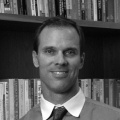
Daron Shaw's areas of expertise include elections and campaigns, public opinion and voting behavior, political parties, and survey research and analysis. He is currently on the advisory group for the Pew Elections Performance Index, and in 2013 he served as one of the lead academic research directors for the Presidential Commission on Election Administration.
Philip B. Stark is Professor of Statistics and Associate Dean of Mathematical and Physical Sciences at the University of California, Berkeley. He is the originator of risk-limiting audits, a rigorous method that ensures that tabulation errors did not change the reported election outcome—or (with pre-specified probability) corrects the outcome if it is incorrect. Stark has served on the Board of Advisors of the U.S. Election Assistance Commission since 2016. He has consulted for the Secretaries of State of California, Colorado, and New Hampshire, and has testified as an expert witness in state and federal cases involving election integrity.
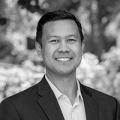
Adriano Udani is Associate Professor of Political Science and Director of the Public Policy Administration Program at the University of Missouri, St. Louis. He also serves as the Research Advisor for the Community Innovation and Action Center at the university. Adriano examines how prejudices toward racially minoritized groups influences attitudes toward election administration, outcomes, and election reforms. Adriano currently serves on the Advisory Board for American Political Science Association’s Institute for Civically Engaged Research.
